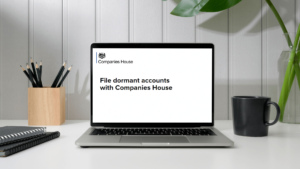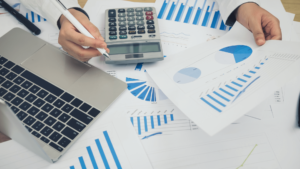Can I claim business start-Up costs?

So you have a big plan of turning your dreams into a reality and start your own business? Congratulations! This is going to be an amazing journey.
But you are here to make this journey not only amazing but also to make sure you do things right and to not miss on anything that you and your business could benefit from.
Each business journey usually starts with a plan which is then turned into actionable steps and one of them involves paying for things that you will need for your business. It can be services or goods.
And here comes a very important question.
Can I claim expenses before my business starts?
A short answer to this is yes, pre-trading expenses can be tax deductible.
This is great news but what about the details like “How many years back can you claim business expenses?” or “What business start-up costs are tax deductible?”.
Let’s look at these questions and the conditions that have to be met to be able to claim start-up costs.
Criteria for claiming start-Up costs
➡️ The expenditure is tax deductible if it’s incurred wholly and exclusively for business purposes.
➡️ If you incurred that expenditure once already running a business, it would be allowable business expenditure, meaning it would be treated as a business expense by HMRC, you can claim it.
➡️ The expenditure can’t be double-claimed meaning that if it was already used against trading income, it can’t be claimed again.
➡️ The expenditure is incurred no more than seven years before you started trading.
➡️ A person who incurred the expenditure must be the person who carries on the trade, so it can’t be something your partner, children or anyone else paid for you.
Examples of pre-trading expenses that can be tax deductable:
- Advertising and marketing
- Phone and internet
- Stationary
- Printing and postage
- Professional costs
- Business insurance
- Bank charges
- Business equipment
Be careful about these costs:
- Training expenses, although in some cases allowed once you run a business, they can’t be tax deductible if they teach you a new skill that then will lead to you opening your business.
- Stock items that you intend to resell as part of your business which are purchased in advance of you trading as a business, can be claimed only once you start to trade, but solely for the items that are sold. For example, you purchase 1,000 pairs of headphones for resale, and in your first year you sell 600 pairs, you can only claim for the cost of the 600 pairs sold, not the 1,000 pairs purchased.
How do I claim start-Up expenses?
Sole Trader
Make sure you keep all your records. You can’t simply claim that you incurred some costs, you have to be able to prove this. Pre-trading expenses are treated the same way as if they were incurred on the first day of trading and it’s a sole trader’s legal obligation to keep business records.
If you’re planning to start a business, make sure you get really organised with your records. If it’s going to take you a while to actually start trading, it will be difficult to remember everything you’ve paid for, so good and diligent record-keeping is important. Business expenses reduce your tax liability, so it’s in your best interest to keep all receipts, invoices and any other proof of your expenditure.
Once you start you business and get to do your first self-assessment tax return, offset your pre-trading costs together with your costs from the first year of trading against your income. Always remember about the rule of the cost being related to your business and if you’ve incurred expenses that could be both business and personal, e.g., telephone costs, make sure you only claim for the business element.
Limited company
Keeping records of all your expenses incurred before starting your business is the key. This is the same as if you were self-employed. You need to have a proof that you really paid for something and what it was. As the time between you starting to pay for some business-related expenses and actually trading can be long, it’s advisable to keep digital records especially if you have lots of receipts. The ink on them fades away after some time.
A very import thing when buying goods or services for your future company is that you have to buy them personally. This means that you can’t purchase them in the name of your company because the company only exists once you officially incorporate it with Companies House.
You have two options for accounting for start-up costs if you’re planning to open a limited company:
👉 Option one– once you set-up a limited company, claim reimbursement of your costs from your company.
👉 Option two– incorporate the company and lend money to it. You will become the company’s creditor and it will have to pay the loan back. However, as you incorporate the business in this case, certain duties of you as a director will start, so you may not want the hassle and option one could be better for you.
In comparison to self-employment, forming a limited company isn’t free. The cost is small but it’s still the money you have to spend. The company formation costs can’t be claimed against tax, so the way of getting your money back in this situation is by using option one- being reimbursed for these costs by the company.
Revenue and capital pre-Trading costs
Revenue expenditure is the type of expenditure that relates to the day-to-day operation of the business whereas capital expenditure improves the business and adds something significant to it. An example of a revenue cost could be a phone bill and a capital cost a computer or a machine that will be used over a longer period of time.
Pre-trading revenue expenditure can be claimed, providing it meets the criteria specified at the start of this article.
Items that would normally qualify for capital allowances which are purchased before trading commences are generally allowed, however, they have to be treated as being brought into the business on the first day of trading, not the purchase date.
Other capital expenses are generally not allowed. Capital allowances are usually applied to purchases of plant and machinery. You should seek expert advice before making any claims for pre-trading expenditure. In practice the rules can be quite complex.
The above information was correct as at April 2021, it may still be correct whilst you are reading this article. However, tax rules can change, so please consult with a specialist before making claims for any business start-up costs.
Need a professional accountant for your business? We are based in Oxford and happy to help. Contact us today.
More Articles
Categories

Your Accountant in Oxford
Oxford Office
Joanna Bookkeeping
The Wheelhouse Angel Court
First Floor, Angel Court
81 St Clements St
Oxford
OX4 1AW
Connect
joanna@joannabookkeeping.co.uk
01865 591952





